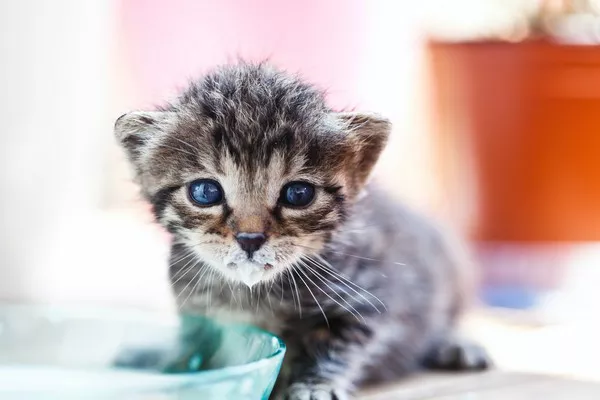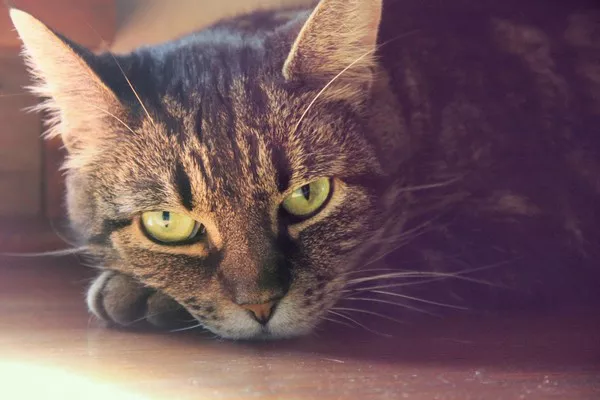Maintaining your cat’s kidney health is crucial for their overall well-being and longevity. Kidney disease is common in cats, especially as they age, and early detection and preventative care can make a significant difference. This comprehensive guide will provide you with valuable insights and practical tips to keep your cat’s kidneys healthy.
Understanding Feline Kidney Health
The Function of Kidneys in Cats
The kidneys play a vital role in a cat’s body, performing several essential functions. They filter waste products from the blood, regulate blood pressure, maintain the balance of electrolytes, and produce hormones necessary for red blood cell production. Any compromise in these functions can lead to serious health issues.
Common Kidney Problems in Cats
Chronic kidney disease (CKD) and acute kidney injury (AKI) are the two primary types of kidney issues in cats. CKD is a gradual and irreversible condition often seen in older cats, while AKI is a sudden and potentially reversible condition caused by factors like toxins, infections, or dehydration. Both conditions require immediate veterinary attention and long-term management.
Recognizing the Signs of Kidney Issues
Early Symptoms to Watch For
Early detection is key in managing kidney problems. Common early signs of kidney issues in cats include increased thirst and urination, weight loss, decreased appetite, vomiting, and lethargy. If you notice any of these symptoms, it is essential to consult your veterinarian promptly.
Advanced Symptoms
As kidney disease progresses, more severe symptoms may develop, such as bad breath with a chemical odor, mouth ulcers, muscle wasting, and severe dehydration. Monitoring your cat’s behavior and physical condition regularly can help in early identification and intervention.
Preventative Measures for Kidney Health
Regular Veterinary Check-ups
Routine veterinary check-ups are crucial for early detection and prevention of kidney disease. Regular blood tests and urinalysis can help monitor kidney function and catch any abnormalities early. Your veterinarian can recommend the appropriate frequency of these tests based on your cat’s age and health status.
Proper Hydration
Ensuring your cat stays well-hydrated is one of the most effective ways to support kidney health. Cats are often prone to dehydration, which can strain the kidneys. Provide fresh water at all times and consider using a water fountain to encourage drinking. Wet food can also be a great source of additional hydration.
Balanced Diet
Feeding your cat a balanced diet that supports kidney health is essential. Look for high-quality cat foods that are low in phosphorus and sodium but high in protein and essential nutrients. Consult your veterinarian for dietary recommendations tailored to your cat’s specific needs.
Weight Management
Obesity can contribute to various health issues, including kidney disease. Maintain your cat’s ideal weight through a combination of a balanced diet and regular exercise. Engage your cat in interactive play to keep them active and stimulated.
Avoiding Toxins
Cats are particularly sensitive to certain toxins that can cause acute kidney injury. Avoid exposing your cat to harmful substances such as antifreeze, certain medications, and toxic plants. Keep household chemicals and human medications securely stored out of your cat’s reach.
Home Care for Cats with Kidney Issues
Dietary Adjustments
If your cat is diagnosed with kidney disease, dietary adjustments are often necessary. Specially formulated renal diets are available that help manage kidney disease by reducing the workload on the kidneys. These diets are typically lower in protein, phosphorus, and sodium. Always consult your veterinarian before making any changes to your cat’s diet.
Hydration Support
For cats with kidney disease, maintaining hydration is even more critical. In addition to providing fresh water, your veterinarian may recommend subcutaneous fluids to help keep your cat hydrated. These fluids can be administered at home and are an effective way to manage chronic dehydration.
Medications and Supplements
Various medications and supplements can support kidney function and manage symptoms of kidney disease. Phosphate binders, blood pressure medications, and appetite stimulants are commonly prescribed. Additionally, omega-3 fatty acids and antioxidants can provide supportive benefits. Always follow your veterinarian’s instructions regarding medications and supplements.
See Also: Why Does My Calico Cat Meow So Much?
Monitoring and Follow-Up
Regular monitoring and follow-up with your veterinarian are essential for managing kidney disease. Frequent blood and urine tests can help assess the effectiveness of treatment and make necessary adjustments. Keep a close eye on your cat’s behavior and report any changes to your veterinarian promptly.
Alternative and Complementary Therapies
Herbal and Nutritional Supplements
Some herbal and nutritional supplements may offer benefits for kidney health. For example, certain herbs like astragalus and rehmannia are believed to support kidney function. However, it is crucial to consult with your veterinarian before introducing any supplements, as they can interact with medications and other treatments.
Acupuncture and Traditional Chinese Medicine
Acupuncture and traditional Chinese medicine (TCM) are increasingly recognized for their potential benefits in managing kidney disease in cats. These therapies can help improve blood flow to the kidneys, reduce inflammation, and enhance overall well-being. Seek a certified veterinary acupuncturist or TCM practitioner for these treatments.
Creating a Kidney-Friendly Environment
Stress Reduction
Reducing stress is essential for cats with kidney disease. Stress can exacerbate symptoms and negatively impact overall health. Create a calm and comfortable environment for your cat by providing safe hiding spots, regular routines, and gentle handling. Consider using pheromone diffusers to promote relaxation.
Accessible Resources
Ensure that all necessary resources such as food, water, and litter boxes are easily accessible to your cat, especially if they have mobility issues. Multiple water stations and litter boxes throughout your home can encourage hydration and make it easier for your cat to maintain good hygiene.
Comfortable Living Space
Provide a comfortable and cozy living space for your cat. Soft bedding, warm spots, and perches can enhance their comfort and well-being. Regularly clean their living areas to ensure a hygienic environment.
Understanding Treatment Options
Conventional Treatments
Conventional treatments for kidney disease in cats include medications to manage symptoms, special diets, and fluid therapy. In some cases, advanced treatments like dialysis or kidney transplants may be considered. Discuss all available options with your veterinarian to determine the best course of action for your cat.
Holistic Approaches
Holistic approaches can complement conventional treatments and improve your cat’s quality of life. These may include nutritional therapy, herbal medicine, acupuncture, and other alternative therapies. Always integrate holistic approaches under the guidance of your veterinarian to ensure a balanced and safe treatment plan.
Long-Term Management and Support
Ongoing Veterinary Care
Long-term management of kidney disease requires ongoing veterinary care. Regular check-ups, blood tests, and urine analysis are essential to monitor your cat’s condition and adjust treatment plans as needed. Stay in close communication with your veterinarian and follow their recommendations diligently.
Support Groups and Resources
Joining support groups and accessing resources can provide valuable information and emotional support. Online forums, local support groups, and educational websites can connect you with other cat owners facing similar challenges and offer practical advice and encouragement.
Quality of Life Considerations
Maintaining a good quality of life for your cat is paramount. Focus on providing comfort, managing pain, and ensuring your cat remains happy and engaged. Be attentive to your cat’s needs and work with your veterinarian to address any changes in their condition promptly.
Conclusion
Keeping your cat’s kidneys healthy requires a combination of preventative care, early detection, and appropriate treatment. Regular veterinary check-ups, proper hydration, a balanced diet, and a stress-free environment are crucial components of kidney health. By staying informed and proactive, you can help ensure your cat enjoys a long, healthy, and happy life.
Understanding the complexities of feline kidney health and implementing these strategies can make a significant difference in your cat’s well-being. Always consult with your veterinarian for personalized advice and treatment options tailored to your cat’s specific needs. With dedication and care, you can effectively support your cat’s kidney health and enhance their quality of life.

























